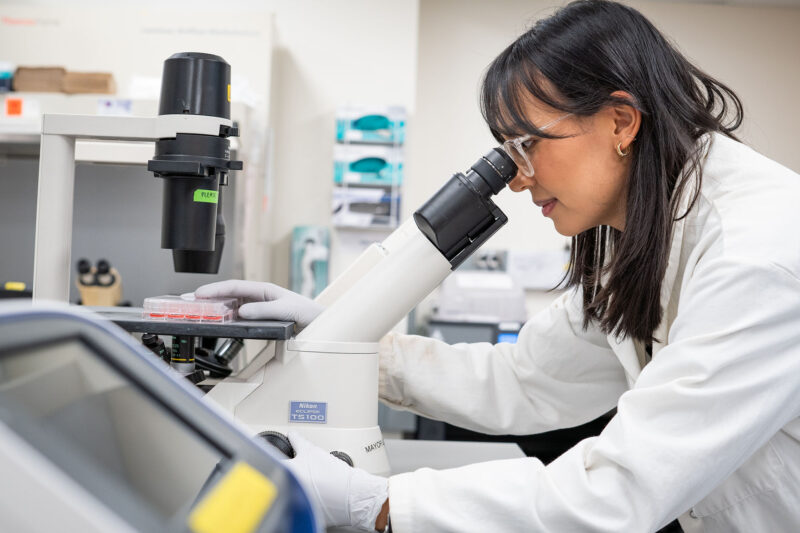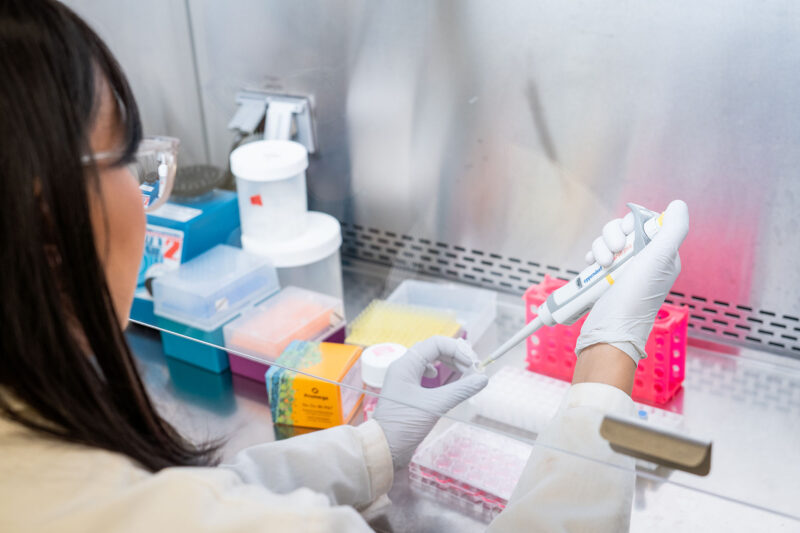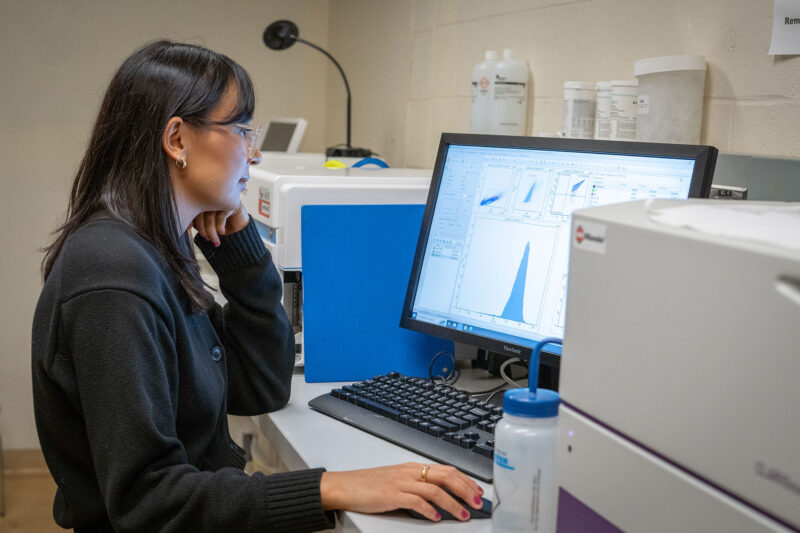Awards and recognition
Graduate student highlight: PhD candidate Heather Baker
The Michael Smith Laboratories is pleased to highlight one of our outstanding graduate students, Heather Baker, a PhD candidate in the Mayor Lab. Baker (she/her) is heavily involved with the Michael Smith Laboratories Social Committee, helping to organize and host events for her colleagues, and is also a recipient of a Canada Graduate Scholarship (Tri-Agency).
About the Canada Graduate Scholarship
The Canada Graduate Scholarship – Doctoral Program aims to encourage students to pursue research excellence by “rewarding and retaining high-calibre doctoral students at Canadian institutions”, leading to impacts both inside and outside of the lab. Baker embodies the description of this award through her passion for research in the discipline of biochemistry, as well as her mentorship in the lab.
We asked Baker to speak with us.

What is your academic background and current area of research?
I completed my undergraduate degree in Biochemistry at the University of Alberta in 2019. Throughout my undergraduate studies, I actively participated in research projects, finding excitement in contributing to diverse scientific endeavors. This passion led me to pursue graduate studies in Professor Thibault Mayor’s lab within the Department of Biochemistry and Molecular Biology and the Michael Smith Laboratories.

My current research is focused on identifying and understanding proteins involved in addressing problematic proteins in cells, specifically in the cytosol. This includes ‘quality control proteins’, as well as chaperones that aid with re-folding and enzymes that help with breaking down mutated proteins.
What inspired you to pursue this area of research?
My undergraduate honors thesis on protein quality control across different cell types ignited my interest in this field. Proteins are amazing biological machines, and I was drawn to the complex mechanisms that are involved to ensure the right proteins are being made, that they are being folded correctly, and that problematic proteins are destroyed to protect the cell.
What is one of the rewarding aspects of your doctoral journey?
I love the mentorship aspect of my work. Throughout my time here, I’ve been lucky to mentor several amazing undergraduate students and junior graduate students that have joined our lab. I think back to when I was learning the research basics years ago and was grateful to have excellent mentors who guided and supported me, and I am glad I can do the same for others.
What are the biggest challenges you face in your research?
One significant challenge is the sheer intricacy and diversity of protein interactions within cellular systems, making it challenging to pinpoint specific proteins crucial in targeting mutated proteins accurately. These interactions can also be quite unstable, making it challenging to record them. However, the technology is rapidly advancing, and we are trying out improvements to a method called BioID, a ‘proximity-labelling’ technique, that may help to address these issues.
What is the potential impact of your research?
My research looks to uncover how cells manage problematic proteins, specifically looking at enzymes known as E3 ligases and their role in recognizing and targeting these proteins to be destroyed. This might reveal important information about diseases such as Alzheimer’s, Parkinson’s, and rare genetic conditions. By understanding how cells mark and remove these mutated proteins, this research could open doors to creating new treatments for these diseases.

What new directions could your research take?
Naturally, there are new ideas and potential projects that come out of existing work. I am interested in diving a bit deeper into how proteins are recognized by E3 ligases and other quality control factors. There is currently some work in this field investigating the patterns E3 ligases are able to recognize, but there are over 600 E3 ligases in mammals, so there is still a lot that we don’t know. Leveraging proximity-labeling techniques and mass spectrometry, I hope to uncover some of these patterns and their corresponding E3 ligases.
What does the Canada Graduate Scholarship mean for you?
This award is recognition of the importance of investigating the complexity of protein quality control. It not only supports this area of research, but also invests in my future as a scientist, providing invaluable support throughout the rest of my PhD at UBC for which I am immensely grateful.